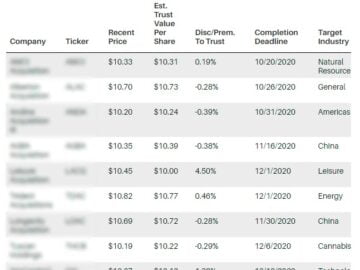Seeking out great stocks to buy is essential, but many would say it’s even more important to know which stocks to steer clear of. A losing stock can eat away at your precious long-term returns. So, figuring out which stocks to trim or get rid of is essential for proper portfolio maintenance.
Even the best gardens need pruning and our team has spotted a few stocks that seem like prime candidates for selling or avoiding. Continue reading to find out which three stocks our team is staying away from this week.
Communications software company Everbridge (EVBG) made it to our list after the release of dismal 2022 guidance and the announcement of a poorly timed change in management. The company announced the resignation of CEO David Meredith and gave no explanation for him unexpectedly giving up his seat. In the interim, Everbridge’s CFO and VP Patrick Brickly and CRO Vernon Irvin will act as Co-Ceo’s until a permanent replacement is found.
BofA analyst Brad Sills downgraded Everbridge to Underperform from Neutral with a price target of $100, down from $175. The analyst cites the company’s announcement of the transition of its CEO. “The CFO and CRO of Everbridge are capable executives, but the CEO transition creates an overhang and also puts into question the overall future direction of the business”, Sills tells investors in a research note.
Everbridge also offered an initial look into revenue guidance for 2022. The company sees 20%-23% growth, which is well below Wall Street expectations. With growth decelerating 36% in 2021 to 23% in 2022, there are a lot of unanswered questions that management has yet to address.
JPMorgan analyst Sterling Auty also downgraded EVBG to Neutral from Overweight with a price target of $127, down from $200. The analyst believes the new 2022 growth guidance is likely to further solidify growth deceleration concerns, “especially with the possibility of disruption from the leadership change.”
Stay at home culture lifted PTON to great heights throughout 2020, surging above $160 during the holiday season last year. Sadly, the past year has not been kind to Peloton as reopening headwinds seem to have been too much for the company to handle. The company’s failure to execute amid growing competition in the space has dragged share price down nearly 75% this year.
A large part of that loss came after the company reported a steep revenue miss during its recent earnings call. The consensus was looking for $1.51 billion in revenue for the first quarter and $5.4 billion for fiscal 2021. The reported figures fell short, further disappointing investors. Peloton reported $1.1 – $1.2 billion in revenue for the first quarter and $4.4 – $4.8 billion for FY21. The company attributed their lackluster performance to a greater than expected tapering in retail visits and website traffic.
To make matters worse, Peloton’s outlook for FY22 was less than rosy. The company said that the supply chain crisis and higher freight costs led them to lower guidance for the year. The company further stated that its team has never seen a more complex operating environment in which to guide or expect results. Hardware margins are seeing compression from supply chain and logistics issues limiting visibility into future performance. The company lowered FY22 revenue guidance that was initially provided last quarter by $800 million.
Peloton has been downgraded at several firms and its price target slashed. Stifel analyst Scott Devitt downgraded Peloton to Hold from Buy with a price target of $70, down from $120. The analyst says the company’s fiscal year outlook has seen “rapid deterioration.”
PTON share price has bled 63% over the past 6 months, which could pique the interest of bargain hunters. We’ll stick to the sidelines until there is evidence to validate the already pricey valuation.
SaaS customer service platform developer Zendesk (ZEN) is last up on our list after announcing plans to buy Momentive (MNTV), a customer experience solutions provider. ZEN would acquire MNTV at a cost of $4 billion in stock, which equates to almost one third of Zendesk’s market cap.
The pros on Wall Street were not pleased by the acquisition that Zendesk said will be “growth accretive” by 2023. Analysts slashed their ratings and price targets on Zendesk because of the hefty dilution and the risk of spending so much on a business that’s growing more slowly than the acquirer. Zendesk’s revenue is on pace to grow almost 30% this year, while Momentive is expected to grow by just under 20%.
Piper Sandler analyst Brent Bracelin downgraded ZEN to Neutral from Overweight, lowering his price target to $122 from $175. The analyst sees near-term integration risks and potential shareholder dilution with Momentive shareholders poised to take a 22% ownership stake in the combined Zendesk business post the deal close. He’s comfortable moving to the sidelines pending better visibility into the combined growth trajectory of the combined business models.







